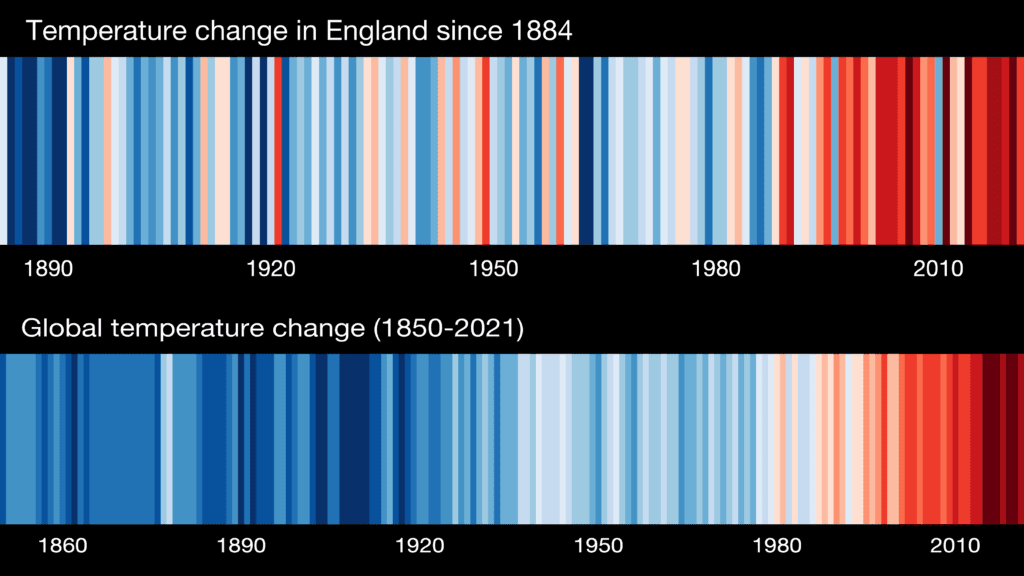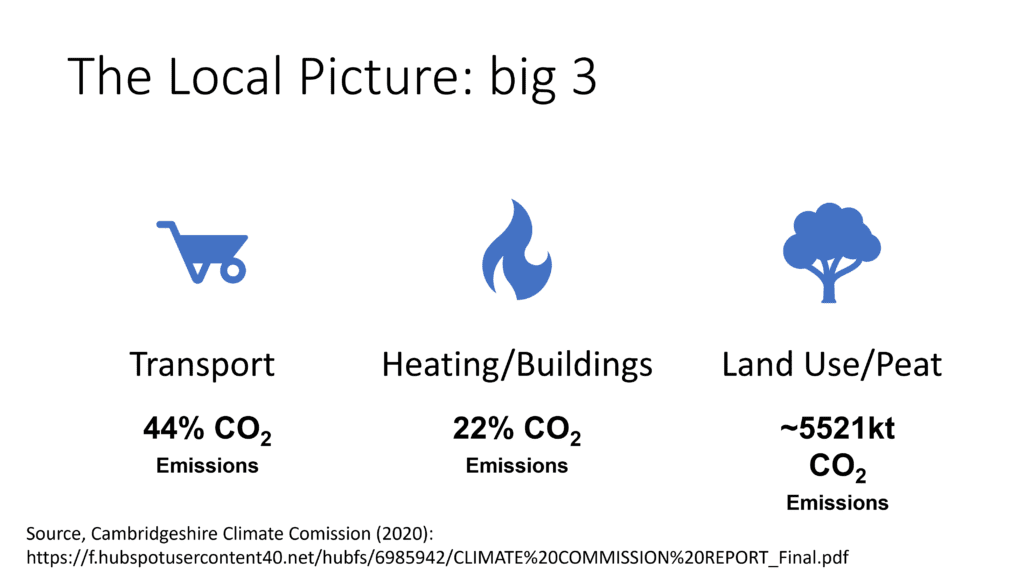About the Climate and Biodiversity Crisis
What is Climate Change?
Human activity, specifically the burning of fossil fuels, has caused the Earth’s climate to warm by approximately 1.2°C since the industrial revolution. This may not sound dramatic but it is a faster change than has happened in all of human history. It has already resulted in an increased frequency of extreme weather such as the record-breaking heatwave of summer 2022, wildfires and the floods in Pakistan. Alongside this, we are also witnessing the loss of many wild species with populations of wild animals now 69% smaller on average than in 1970 according to the World Wide Fund for Nature.
As a low-lying region, East Cambridgeshire is particularly vulnerable to flooding and sea level rise. As the climate warms, these risks will increase. It is therefore vital that we act to reduce our impact and work toward a zero-carbon future.
“A personal note from climate scientist Dr Adam Levy about why climate change matters and how our decisions and actions will determine the kind of future our children will inherit”
How we know humans
are causing climate change
When we burn fossil fuels and clear wildlife habitats like forests and wetlands, greenhouse gases such as carbon dioxide and methane are released into the atmosphere. These warming gases act like a blanket around the earth. These gases do also occur naturally and we need them to help maintain a stable environment for life on earth. However, the Earth’s systems are in a delicate balance, so when concentrations of greenhouse gases get too high, it can cause major problems.

According to the IPCC (Intergovernmental Panel on Climate Change), the concentration of carbon dioxide in the atmosphere is now higher than at any point in the last 3-4 million years. We know this is causing the warming we are currently experiencing because climate scientists have shown that the other possible factors which can affect the climate, such as solar activity, have remained relatively stable. This led them to conclude that, “It is unequivocal that human influence has warmed the atmosphere, ocean and land since pre-industrial times.”

The Future We Choose
On our current climate warming trajectory, we’re heading for a 3 degrees Celsius world by the end of the century relative to before the industrial revolution. Due to decades of delay in reducing climate-warming emissions from burning fossil fuels, we now need very rapid cuts to emissions to have a chance of limiting warming to two degrees let alone 1.5 degrees. The difference between these potential climate futures is vast, limiting warming to 1.5 degrees would avoid many of the worst impacts of climate change. At 2 degrees of warming, there would be significantly more frequent extreme weather events, low-lying areas will be affected by sea level rise and we would see significant damage to the ecosystems in our rivers, seas and oceans. For example, marine scientists estimate that at this level of warming, we would lose over 90% of coral reefs. At 3 degrees of warming vast areas of the earth will be uninhabitable and our food system will likely collapse.
What Role Does East Cambridgeshire Have in Solving the Climate and Biodiversity Crisis?
Solving climate change and biodiversity loss can seem like an overwhelming task but local communities can make a really big difference. All over the UK people are banding together in their local area to make change happen. The more people who bring forward solutions to help speed up the transition to Net Zero carbon emissions at the local level, the stronger the groundswell of support for action at the national and international levels becomes. In Cambridgeshire, when you break down the major contributions to climate change you find that the vast majority of our greenhouse gas emissions (the gases that cause climate change) come from three sources. According to the Cambridgeshire Climate Commission, these are: Transport, Buildings (Heating and other energy use) and Land Use. As a group, we’re working to build links with other local groups and interested councillors so we can start implementing practical actions to tackle emissions from these three sources. In doing so we can also help benefit wildlife, businesses and communities too.
If you want to help speed up the transition to zero carbon locally then get involved and #ChangeWithUs

